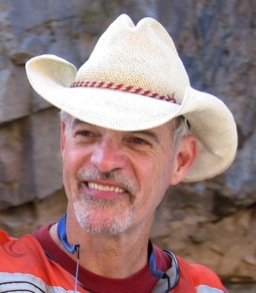I‘ve been following Garry B Trudeau’s Doonesbury strip for 30 years or more — the latest cartoon is one of the first emails I read every day. Looks like this week’s strip will be worth following. Meanwhile, out in the real world, the Republican would-be candidates for the Presidency of the United States continue to demonstrate that the American political system is profoundly broken — and avid users of the myFACTS service.
Tag: denial
Climate ethics and the reckless endangerment of denial
 An interesting-looking series of posts has begun on the climate ethics blog of Penn State’s Rock Ethics Institute. The series plans to put the the climate change disinformation campaign under the ethical spotlight. The introductory post written by Associate Professor Donald Brown examines some of the broad issues before planned subsequent posts look at the detailed tactics employed to discredit the science. As I read the first post I was struck by how relevant its argument is across a much wider sector of society than that occupied by the ethically reprehensible disinformation campaign: it challenges the moral lethargy which seems to afflict many of the world’s governments and business communities when it comes to climate change. They may not be part of the organised denial of climate change, but their response as yet hardly reflects the gravity of the issue or faces up honestly to the ethical challenge it presents. I’ll extract or paraphrase some of Brown’s points which seemed to me to have relevance to our common need to face the moral imperative climate change brings with it.
An interesting-looking series of posts has begun on the climate ethics blog of Penn State’s Rock Ethics Institute. The series plans to put the the climate change disinformation campaign under the ethical spotlight. The introductory post written by Associate Professor Donald Brown examines some of the broad issues before planned subsequent posts look at the detailed tactics employed to discredit the science. As I read the first post I was struck by how relevant its argument is across a much wider sector of society than that occupied by the ethically reprehensible disinformation campaign: it challenges the moral lethargy which seems to afflict many of the world’s governments and business communities when it comes to climate change. They may not be part of the organised denial of climate change, but their response as yet hardly reflects the gravity of the issue or faces up honestly to the ethical challenge it presents. I’ll extract or paraphrase some of Brown’s points which seemed to me to have relevance to our common need to face the moral imperative climate change brings with it.
Continue reading “Climate ethics and the reckless endangerment of denial”
It isn’t the sun
The recent CERN paper in Nature on cosmic rays and cloud formation has caused considerable excitement in the denialist world. Canadian columnist Lawrence Solomon in the Financial Post declared “The new findings point to cosmic rays and the sun – not human activities – as the controller of climate on Earth”. For what the paper really said readers can turn to the welcome and discussion it received on RealClimate. There’s also a useful response to Solomon’s claim on SkepticalScience.
It’s a complex picture, but today I came across this short video which sets it out straightforwardly and with a light touch. (Thanks to The Carbon Brief website.) Put together by Australian science journalist Potholer, it is both an explanation of the science and a picture of how misinterpretations travel in the denialist community.
[Youtube]vvztL9r47MI[/Youtube]
Jolting Contrasts
 I read this morning yet another dismal report on the extraordinary lengths to which Republican politicians hopeful of nomination as presidential candidate in America are going in their denial of climate change. Then I watched an excellent PBS television interview with a couple of intelligent and knowledgeable American scientists which regular Hot Topic commenter Bill had recommended.
I read this morning yet another dismal report on the extraordinary lengths to which Republican politicians hopeful of nomination as presidential candidate in America are going in their denial of climate change. Then I watched an excellent PBS television interview with a couple of intelligent and knowledgeable American scientists which regular Hot Topic commenter Bill had recommended.
It was an extraordinary juxtaposition, all the more surreal because both relate to Texas. How does a country like the US, with scientists and scientific institutions so advanced, manage to throw up leading politicians so wilfully ignorant? (That’s a rhetorical question unless your answer has nothing to do with money.) Continue reading “Jolting Contrasts”
What Motivates the Scientist Deniers?
 There wasn’t room in my review of James Powell’s book The Inquisition of Science to comment on one or two aspects of the book in the detail I’d have liked, and I’ll take up one in particular in this supplementary post. In a chapter titled The Anatomy of Denial he has an interesting short discussion on the motivation of the scientist deniers. The denial campaign depends on having some scientists to whom it can point in confirmation of its arguments, and they have duly been forthcoming, albeit few of them actively engaged in climate science. Powell’s analysis confirms what others have discovered, but he puts it freshly and it’s worth highlighting regularly.
There wasn’t room in my review of James Powell’s book The Inquisition of Science to comment on one or two aspects of the book in the detail I’d have liked, and I’ll take up one in particular in this supplementary post. In a chapter titled The Anatomy of Denial he has an interesting short discussion on the motivation of the scientist deniers. The denial campaign depends on having some scientists to whom it can point in confirmation of its arguments, and they have duly been forthcoming, albeit few of them actively engaged in climate science. Powell’s analysis confirms what others have discovered, but he puts it freshly and it’s worth highlighting regularly.
Some of the scientist deniers he sees as simply contrarian by nature, revelling in being different. Every field of science has had its contrarians with provocative ideas. Most of the ideas may be wrong, but even so they can advance the science by stimulating new experiments and new questions. Contrarians may sometimes play a valuable role as devil’s advocate, but they may also simply and repeatedly be wrong. He notes wryly that if Freeman Dyson were to accept global warming no one would pay any attention to him since he would merely be one of tens of thousands contributing to the scientific consensus, almost any one of whom would know as much as he. By denying it, he lands on the cover of the New York Times Magazine and is lauded for intellectual courage. In Powell’s extended discussion of Dyson’s denial in an earlier section of the book he quotes Dyson acknowledging that Hansen, whom he accuses of consistently exaggerating the dangers of global warming, has all the credentials established by his hundreds of published papers. Continue reading “What Motivates the Scientist Deniers?”

